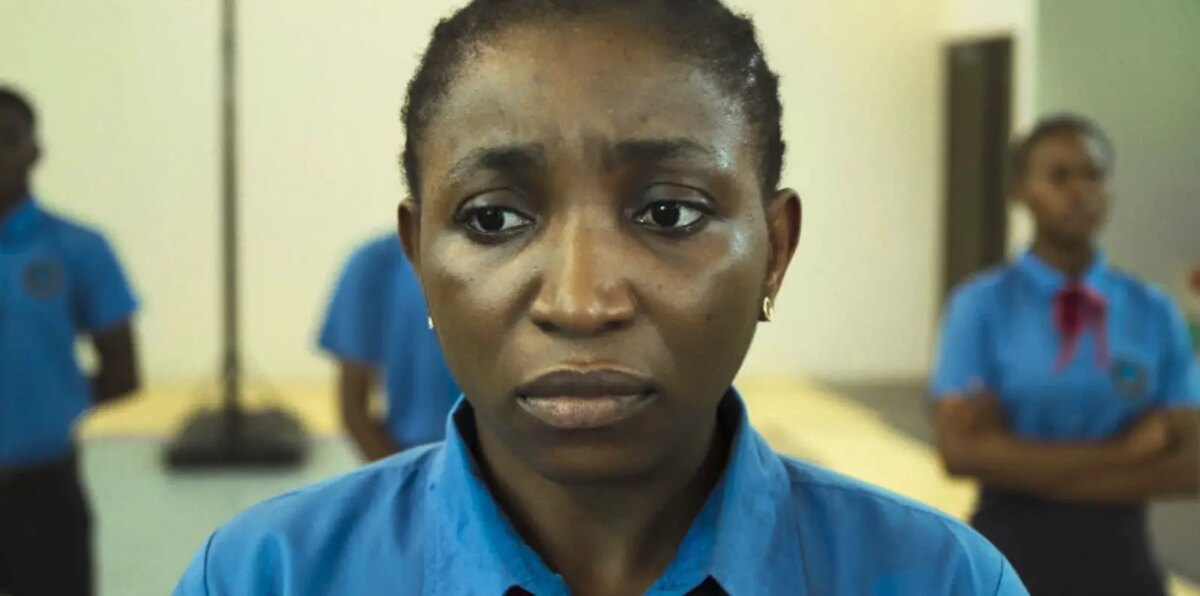
Ran Mi Lowo (Help Me) is a mystery-thriller set in Nigeria. Directed by Akorede Alli and written by Ottah Osondu, the film is set in a well-known high school whose halls harbor a dark secret. Several girls are dropping out and being branded as “drug users” or worse, while the faculty seem uninterested in helping or uncovering why.
Enter the bright, enterprising, aspiring journalist Yemisi (Omowunmi Dada). She springs into acting after her best friend, Adeola (Agunpopo Olamide), winds up in the hospital in a state worse than death. In order to snoop out the perpetrator(s?), Yemisi must sexualize herself and put herself directly in harm’s way. Who is using and abusing these girls, and why? Can the young lady come out the other side, or will she become a victim of an unjust, uncaring, and abusive system?
Ran Mi Lowo has a lot going for it, but it is not without its flaws. Late in the film, a teacher named Tunde (Akorede Alli) is tutoring a student. He asks how old she is, and she replies, “20.” Wait. Doesn’t the plot take place in and around a high school? And looking it up, SSS3 ends when students are 17 or 18. So, this is an odd revelation. It is either a subtitling error, or the film does a poor job of establishing this person as older than most of the other characters. See, she’s a student at the school he teaches at. He would know her approximate age. No matter how one slices it, it is confusing.
“Several girls are dropping out and being branded as ‘drug users’ or worse, while the faculty seem uninterested…”
The other flaw involves a money scam being played on a soldier. One girl talks sweetly to him and then makes up excuses about why she can never meet him after his shift. Another is the “brains” behind the operation. The film only runs a little over 90 minutes, including credits, and these bits still feel tacked on and unnecessary. If it’s meant to highlight how these girls turn the tides against their abusers, it fails. It fails because this soldier is annoyed at waiting but does so and still gives in to the student’s demands. As such, he is one of the only adults viewers don’t want to punch in the face. If it is meant to showcase anything else, it gets lost in everything else going on.
However, Ran Mi Lowo works where it counts. For starters, Alli and directors of photography Abdulahi Yusuf and Sanjo Adegoke have made a terrific-looking picture. The camera swoops, zooms, circles, cranes, and spins to maintain the oppressive atmosphere. When the students are just talking (“She thinks she’s better than us.”) the camerawork lets audiences know that something is amiss. The tightly wound plotting gives way to an edge-of-your-seat intensity that only dissipates in those aforementioned odd moments.
On top of that, the cast is top-tier from beginning to end. Dada is exceptional as thein-over-her-head Yemisi. She’s believable and plays every emotional beat with authenticity. Alli is equally as good as the possibly guilty teacher. His plea for a particular picture back is moving. They are surrounded by capable supporting players. Every person in the film is giving it their all, and each emotional beat is thoroughly felt.
Ran Mi Lowo may not be entirely flawless, but it is a strong debut from Akorede Alli. His directing prowess and cinematic eye are a cut above other indie filmmakers. In addition, he’s assembled a strong cast, all of who deliver in a big way. Next time, maybe Alli and his co-writer can do another pass on the screenplay to tighten up the storyline.
For more information, visit the official Ran Mi Lowo site.










